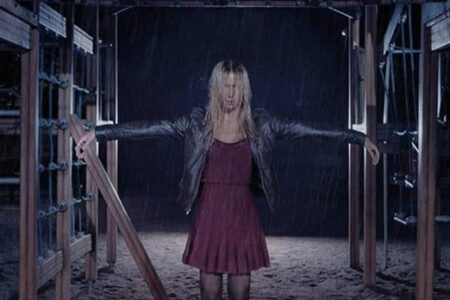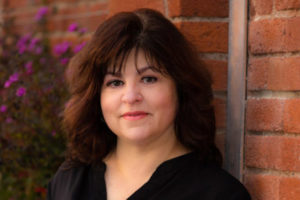On 18 February 2020 Nulpunt was published in The Netherlands. A thriller written by no other than Jørn Lier Horst and Thomas Enger. Dutch publisher A.W. Bruna made it possible for us to ask a few questions, thank you so much!
 For those of you who might not know who you are: who is Jørn Lier Horst? Who is Thomas Enger? How would you describe each other?
For those of you who might not know who you are: who is Jørn Lier Horst? Who is Thomas Enger? How would you describe each other?
Jørn:
Thomas Enger is the journalist-turned-author behind the internationally acclaimed and bestselling Henning Juul series. Enger’s trademark has become a darkly gritty voice paired with key social messages and tight plotting. Besides writing fiction for both adults and young adults, Enger also works as a music composer.
Thomas:
With his award-winning novels about William Wisting, Jørn Lier Horst has joined the Nordic crime writer’s elite. Having worked as a head of investigations before becoming a full-time author, Horst brings a unique brand of suspense and realism to the table.
You’ve both written very successful books by yourself. How did you end up together? Whose idea was that?
We have a friendship that goes back ten years. In many ways, writing brought us together. We have published a number of books at the same publishing house in Norway. With police and journalist backgrounds, respectively, we have been able to benefit from each other’s professional knowledge in each other’s writing process.
When we meet, we often discuss books we have read and liked. The idea of doing something together emerged as early as 2012. In the next few years, we discussed ideas, plots and characters when we met. Often at literature festivals both at home and abroad.
How difficult was it to write a book together? How does that work? Are your writing routines very similar?
Being two who writes a book doesn’t mean it’s half the job. On the contrary. It is a lot of work, but it has been a surprisingly painless process. We plotted out the whole story first. Talked us through characters and what direction the story should go from start to finish. Then we wrote chronologically, but worked bulkily and like in a relay race. That is, one has written up to a turning point, then the other has read and evaluated before the baton goes on. We have, in many ways, been each other’s editors.
Although we have different writing styles, we kind of speak the same language. When one thinks that a scene should be moved or done in another way, it has been unnecessary to argue or explain why, because we have the same understanding of dramaturgy.
What has been most challenging has been finding time where we can both work on the same project at the same time, as we’re both very busy travelling and working on other projects as well.
 Who came up with the idea for Nullpunkt? Can you tell us more about the story and its characters?
Who came up with the idea for Nullpunkt? Can you tell us more about the story and its characters?
Nullpunkt is a high-speed thriller. The main characters are police investigator Alexander Blix and celebrity blogger Emma Ramm. A missing person brings them together. Former queen of long-distance running, Sonja Nordstrøm, does not show up for an interview on live TV, where she is invited to talk about her controversial autobiography. When celebrity blogger Emma Ramm goes to Nordstrøm’s home later that day, she finds the door unlocked and signs of a struggle inside.
Police Chief Alexander Blix is set to lead the investigation. Traces of Nordstrøm soon appear in different places, but the clue seems to be carefully placed and turns out to be part of a much larger picture.
Blix and Ramm soon join forces in the search for a celebrity killer with a distinct taste for the dramatic. He’s hungry for attention. And he’s just gotten his first taste of it …
As the unfortunate couple comes closer to a solution, their common past is slowly but surely revealed. A common past that only one of them knows about, but that has both shaped and influenced the lives of both.
 Nullpunkt was the first book and then there was Røykteppe. Any idea how many books you will write in this series? Do you have a certain number in mind?
Nullpunkt was the first book and then there was Røykteppe. Any idea how many books you will write in this series? Do you have a certain number in mind?
It takes at least three books to call it a series, so right now, we are working on the third installment. Blix and Ramm have become a good couple. We like them and have invested a lot in creating them. We probably won’t reveal too much by saying that they both survive in book 3. Whether that means that there will be a book 4, or even 5, remains to be seen.
You are both very successful in your own countries as well as abroad. Some of your books even have been made into a tv series, Jørn. Do either of you have dreams left when it comes to writing? What is your ultimate goal (if you have one)?
We do not think of such things as we write, but reaching out to readers all over the world, winning awards for our work, and experiencing adaptations to film and television series is gratifying and a recognition of the work we do and the stories we tell. It is, in many ways, a journey it is enjoyable to be part of.
What is a driving force for us, as for all writers, is the certainty that we have not yet written our best novel.
Jørn, you used to be a detective with the Norwegian police. What made you switch to writing crime? The same question for you Thomas, why the switch from journalism to crime writing? Is it something you both always wanted to do?
Jørn
I wrote alongside the job as a homicide detective for many years, but the writing career grew gradually so big that I did not find time to double the work. I left the police in September 2013. In many ways it was a profession that shaped me as a person, and my books show signs of that too. My work as a chief investigator meant that I was able to slip in behind the crime scene tape, negotiating my way around the remnants and traces left behind in the wake of serious crimes, and witnessing what is left following a ruthless struggle. Stepping inside previously closed rooms that offer up unexplored secrets. That is where I like to take my readers.
In working on these cases, of course, I also met people who had been victims of these crimes, and sometimes only the surviving friends and family left behind. At the same time it was also my job to talk to the people who had committed these crimes, and in fact interview the perpetrators. The experience of standing face to face with other people’s anger, frustration and regret has contributed to the creation of an authentic tone in my books that in general terms it is probably difficult to imitate.
Thomas
I have always tinkered around with stories of some kind, trying to write a short story, then moving on to bigger projects while I was studying, but also after I started working. I enjoyed being a journalist a lot, but I wanted to tell my own stories more. It became a dream for me, and I worked really hard to achieve that dream.
Do you read a lot yourselves? Who is your favorite author? What is the best book you have ever read?
 Jørn
Jørn
I have no favorite author, but I would probably not have been the writer I am without the late Swedish writer Henning Mankell. I probably would not have been the same policeman either. My first encounter with Mankell was the first novel about Kurt Wallander. Faceless Killers, published in Norwegian in 1993. I read it during my studies at the Police Academy and thought it was such a policeman I would be. An upright and good detective who led the work with major cases. Thus have Mankell / Wallander staked out my career to the role I had for many years as chief investigator for the police.
 Thomas
Thomas
Oh, I’ve had plenty of ‘favorite‘ authors over the years. For me it started with Henning Mankell, which led me to discovering more of the contemporary Swedish and Nordic crime writers, before I started to explore the UK writers and the American ones. If I were to pick two, I would say that Harlan Coben and John Hart probably are my all-time favorites. Harlan Coben’s “The Woods” is a thriller masterpiece.
What makes Nullpunkt different, compared to other thrillers? Why should we definitely read your book?
We hope Nullpunkt will be an exceptional and exciting read.
Our background as a murder investigator and journalist, respectively, means that we have both been able to write realistic crime novels. In the thriller series about Emma Ramm and Alex Blix, we frolic at a different end of the genre scale. The part of the crime genre that is about a criminal master brain and revenge seeking serial killers who select their victims according to a careful plan. Moving away from the usual framework has been liberating. In books like these, one of the genre feature requirements is that it shall be entertaining. It is pure escapism that is in the center of the reading experience.
When we were to embark into this literary landscape, we wanted, however, the framework to still be as credible as possible. We researched real cases, and in this way, the groundwork for Nullpunkt became a fascinating journey into some of the sickest human psyches the world has ever known.
 Serial killers elicit a ghastly fascination in most of us. These morbid stories about people who only feel alive when they kill, arouse our curiosity as few other occurrences do. Many of us are attracted to what cannot be explained, and for the majority of people, serial killers present an inexplicable phenomenon: their lack of empathy, absence of guilt, the idea that someone can experience lust and satisfaction through abducting, torturing, raping, maiming, and murdering, and yes, occasionally even eating the flesh of another human being, these are all features that most people find incomprehensible. And the serial killer personifies, as few others do, what we consider to be pure evil. The majority of us are fortunately spared this in our own lives; we are able to respond to it from a safe distance, in the form of novels. As entertainment, then, these stories contain a peculiar darkness and a special power to draw readers in and let us forget reality for a while. Or maybe not. Because at the back of the reader’s mind is the tantalizing knowledge that a serial killer can be an apparently perfectly ordinary person, without any external indication of the evil that lies within. No matter how many victims they have on their conscience or how bestially they commit their crimes, they still wake every morning to their accustomed routines. They are monsters hidden in the commonplace, murderers who push shopping trolleys, frequent coffee bars, walk a dog in the park, or as in Death Deserved, a person who is hiding in the crowd.
Serial killers elicit a ghastly fascination in most of us. These morbid stories about people who only feel alive when they kill, arouse our curiosity as few other occurrences do. Many of us are attracted to what cannot be explained, and for the majority of people, serial killers present an inexplicable phenomenon: their lack of empathy, absence of guilt, the idea that someone can experience lust and satisfaction through abducting, torturing, raping, maiming, and murdering, and yes, occasionally even eating the flesh of another human being, these are all features that most people find incomprehensible. And the serial killer personifies, as few others do, what we consider to be pure evil. The majority of us are fortunately spared this in our own lives; we are able to respond to it from a safe distance, in the form of novels. As entertainment, then, these stories contain a peculiar darkness and a special power to draw readers in and let us forget reality for a while. Or maybe not. Because at the back of the reader’s mind is the tantalizing knowledge that a serial killer can be an apparently perfectly ordinary person, without any external indication of the evil that lies within. No matter how many victims they have on their conscience or how bestially they commit their crimes, they still wake every morning to their accustomed routines. They are monsters hidden in the commonplace, murderers who push shopping trolleys, frequent coffee bars, walk a dog in the park, or as in Death Deserved, a person who is hiding in the crowd.
Last but not least: is there anything you’d like to say to your Dutch readers?
Turn on the lights, lock the door and enjoy!





